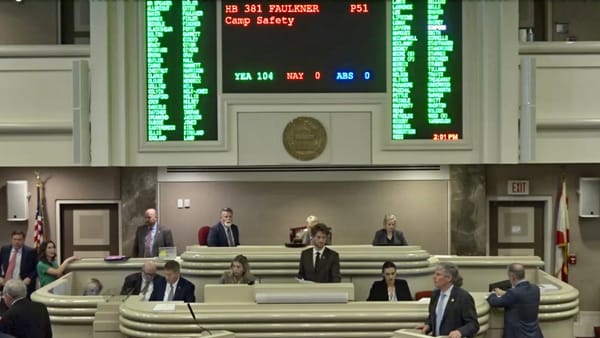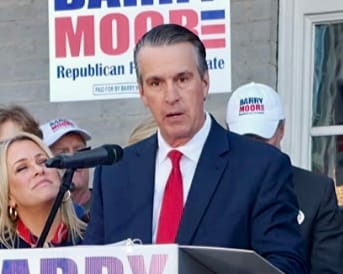Alabama Cattlemen Sound Alarm Over Trump’s Argentine Beef Deal
ACA insists deal will not work but threatens American ranchers, have issued CTA to let Congress know it has opposition

The Alabama Cattlemen’s Association (ACA) is leading a concerted pushback against a newly revealed deal that would import more beef from Argentina. The Association says the move—ostensibly aimed at “lowering prices” and “helping Argentina”—threatens the financial stability of Alabama’s ranchers at a time when the market is unusually strong.
President Trump’s comments that the U.S. “would buy some beef from Argentina … that will bring our beef prices down” have stirred volatility in cattle futures and caught the attention of cattle producers in Alabama and beyond.
In a statement sent from the ACA’s offices, the Association countered:
“This WILL NOT WORK — and it should not come at the expense of America’s beef producers.”
The ACA adds it has engaged in constant communication with the offices of U.S. Senators Britt and Tuberville to voice opposition to this deal. The statement continues:
“We will continue fighting for Alabama’s cattle producers who work tirelessly to raise a high-quality product while stewarding our homeland’s natural resources and rural communities.”
The ACA has urged Alabamians to join with them in expressing strong opposition to this action to members of Congress.
To let Congress know you support Alabama’s ranchers, go to THIS LINK.
For many Alabama ranchers, the timing is critical. After several tough years of adverse weather, rising feed costs, and shrinking herds, many producers finally began seeing record prices. The risk now, they say, is that an influx of Argentine beef—even if modest—could erode those gains.
Nationally, Argentina currently contributes roughly 2 percent of U.S. beef imports. Analysts argue that only a dramatic shift in volume would have a measurable impact on U.S. grocery meat prices.
Inside the industry, many say the deal appears more political than practical. They note that Washington recently extended significant financial aid to Buenos Aires even as Argentine beef begins to compete in U.S. markets.
Just weeks before the beef import announcement, the Trump administration finalized a $20 billion currency swap with Argentina’s central bank, designed to stabilize Argentina’s peso and support President Javier Milei. In subsequent plans, the administration floated an additional $20 billion via private financing, raising the total U.S.-backed aid package to $40 billion. (Western Ag Network)
Critics in U.S. farm country say this sequence is disturbing: first a massive bailout, then an import deal that could undercut domestic producers. “The White House recently bailed out Argentina with $40 billion in U.S. taxpayer-backed aid … The last thing we need is to reward them by importing more of their beef,” said Rob Larew of the National Farmers Union in response to the plan.
Although the ACA is Alabama-based, its alarm echoes those from national groups. The U.S. Cattlemen’s Association warns that “increasing imports under current rules … benefits foreign suppliers and multinational packers, while putting U.S. ranchers on the losing end.”
The National Cattlemen’s Beef Association (NCBA) said the import plan “only creates chaos at a critical time of the year for American cattle producers, while doing nothing to lower grocery store prices.” NCBA CEO Colin Woodall also raised disease concerns, pointing to Argentina’s history of foot-and-mouth disease as a potential livestock risk.
For Alabama’s cattle producers, the ACA’s statement captures more than a policy fight—it reflects fear for the livelihood of rural counties. If beef prices soften or become unstable, local operations—many of them family farms—simply can’t absorb the shock.
Already, the mere announcement of the plan rattled trader sentiment. Futures contracts slid after the proposal hit news wires.
Alabama producers also rely on predictability: feed, labor, genetics, and financing decisions all build on forward expectations. Sudden import policy shifts break that stability.
The mechanics of the proposed import deal at this time are unclear. How much beef will be allowed in? Under what tariff or regulatory conditions will it fall? What safeguards will exist? White House officials assert that lowering consumer prices is a priority, but have offered little detail.
For Alabama’s cattlemen, the battle has turned political. Will the ACA and its allies hold the line? Or will the administration proceed with an import strategy that many see as favoring a foreign exporter over American producers?




